The Tsinghua University Institute for Carbon Neutrality (ICON, Tsinghua University) was formally established on September 22.
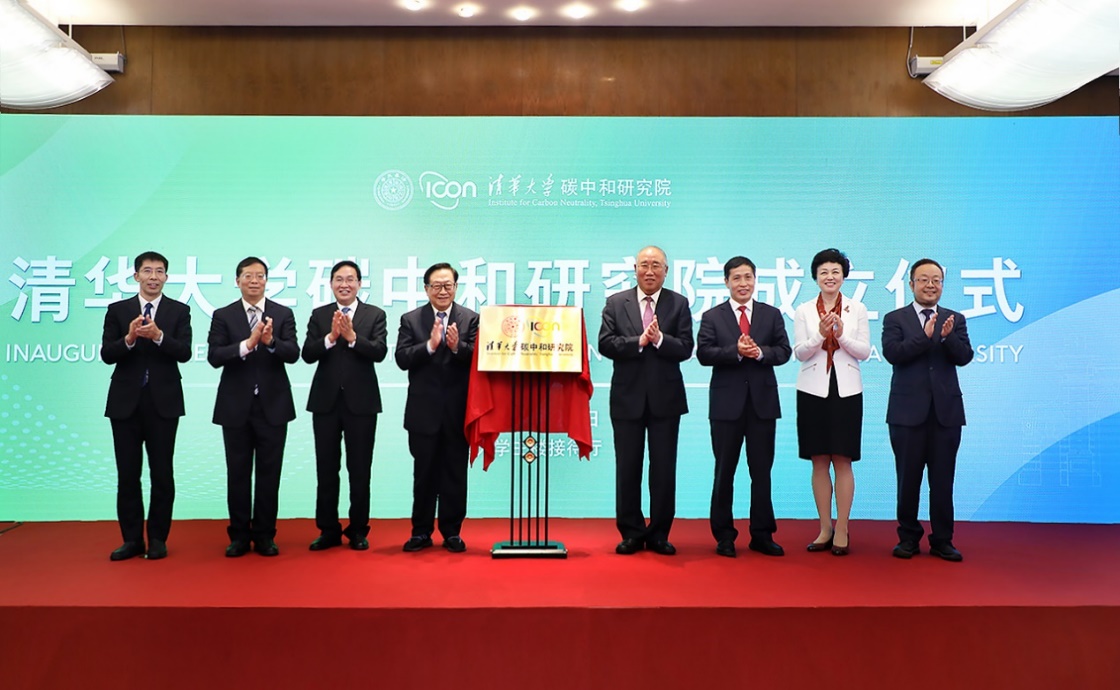
As a strategic institutional initiative taken by Tsinghua University following its 110th founding anniversary, the establishment of ICON represents a momentous step. ICON demonstrates the University’s realization of its responsibility to achieve alignment with national development needs; act on major national strategies and plans for peaking carbon dioxide emissions by 2030 and achieving carbon neutrality by 2060; fully leverage its role as a leading university in coping with global climate change; and, pioneer research of fundamental theories and key technologies connected with carbon neutrality, contributing wisdom and strength to the community with a shared future for mankind and global sustainable development.
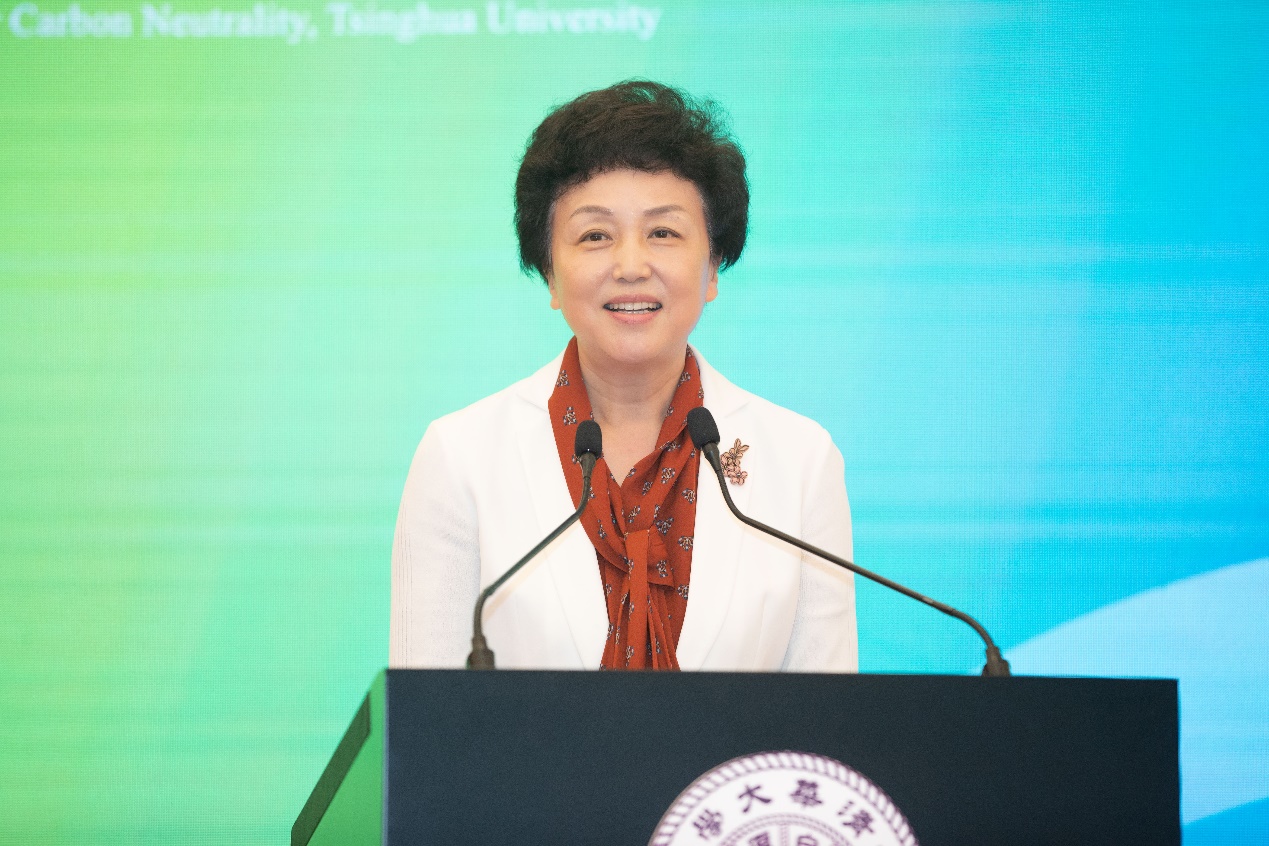
Chairperson of Tsinghua University Council Chen Xu announced the formation of ICON. She called on ICON to center on the country's goal of peaking its carbon dioxide emissions by 2030 and achieving carbon neutrality by 2060, to keep updated with the frontiers of international academic research, and play a leading role in the battle against global climate change. She also advised it to take the lead in the realization of carbon neutrality and the breakthrough in core technologies, and mobilize the strengths and features of relevant disciplines in a drive to promote cross-discipline integration, achieve innovation with the joint efforts of multiple schools and disciplines, and make breakthroughs in research into major fundamental theories.
In addition, ICON was urged to engage in disruptive core technologies related to low-carbon and zero-carbon emissions targets and "carbon negative" business patterns, accelerate academic building and personnel training in carbon neutrality-related disciplines, and eventually become an international research institute with the characteristics of Tsinghua University that serves national goals for carbon dioxide emissions and has global influence in the sector of carbon neutrality.
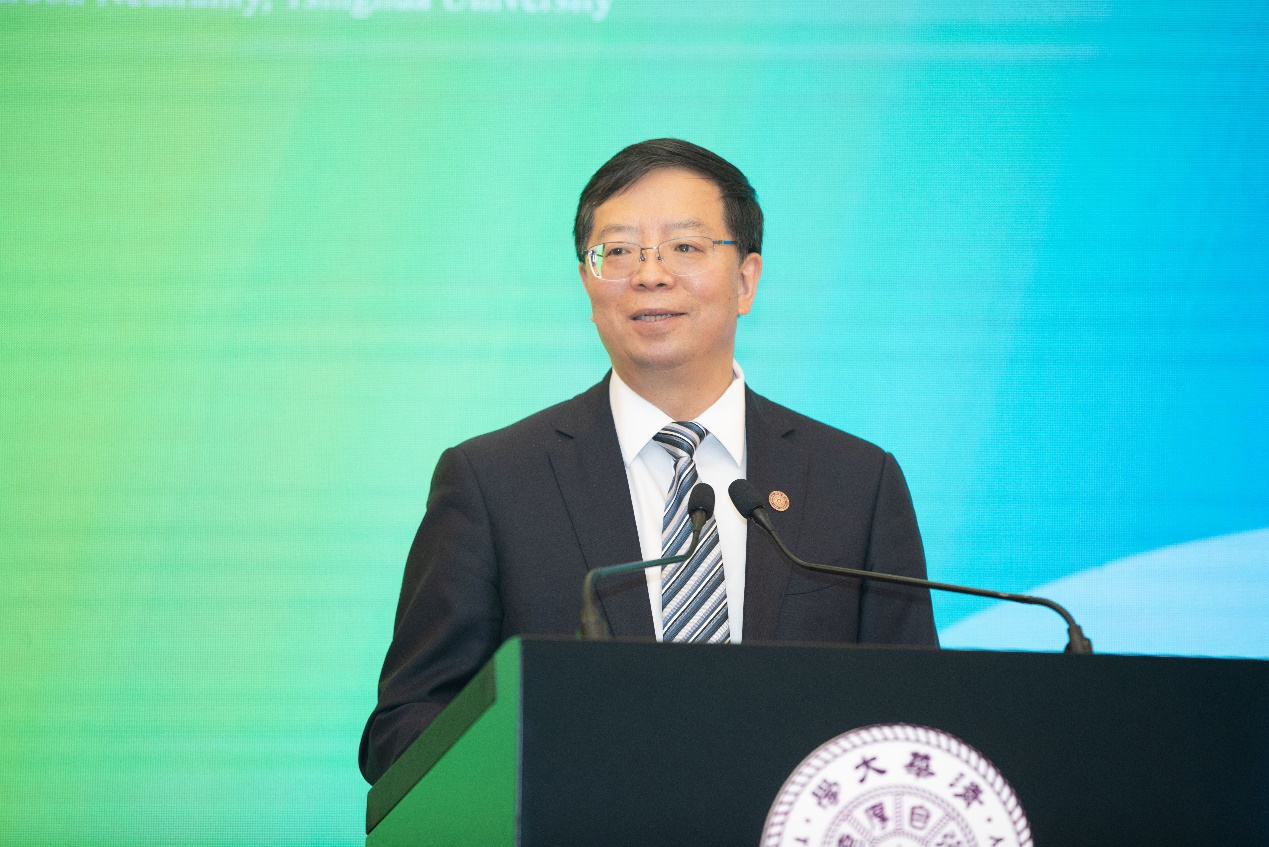
Tsinghua University President Qiu Yong said that it was on this very day in 2020 that President Xi Jinping formally proposed the country's goals for peaking carbon dioxide emissions by 2030 and achieving carbon neutrality by 2060. On this day of special significance, Tsinghua University formally establishes ICON, which is of great importance.
“ICON is expected to fully leverage its cross-discipline strengths, promote coordinated innovation in enterprises, universities and research institutions, and contribute unique efforts to the country's goals in the reduction of carbon dioxide emissions. The establishment of ICON is a major strategic measure taken by Tsinghua University following the celebration of its 110th anniversary, and demonstrates the commitment of its graduates to align with national development needs,” said Qiu.
In his concluding remarks, Qiu urged ICON to usher forward a new phase of innovation-driven technological development by building a high-level platform that harnesses the spirit of both science and education, opening and exchange.

Hua Jianmin, former vice-chairman of the Standing Committee of the National People's Congress and Chairman of Tsinghua University’s Committee of Strategic Development,congratulated ICON on its establishment. He said that the national goals for carbon dioxide emissions are an inherent requirement for China to achieve sustainable and high-quality development, and an inevitable choice to promote the building of a community with a shared future for mankind. The establishment of ICON once again demonstrates Tsinghua’s national sentiments and mission, as well as the deep concern of Tsinghua’s people for the future of Earth, the home of all mankind. He believed that Tsinghua University can play an important supporting role and make positive contributions in implementing the national strategy of actively responding to climate change and promoting China's green and low-carbon development through carrying forward traditions, collaborative innovation, rigor, pragmatism, and hard work.
Zhong Denghua, member of the leading Party group and vice-minister of the Ministry of Education, Lu Ming, member of the leading Party group of the Ministry of Science and Technology, academician of the Chinese Academy of Engineering, Shu Yinbiao, secretary of the leading Party group and chairman of the board of China Huaneng Group, academician of the Chinese Academy of Engineering, and Yu Jianfeng, secretary of the leading Party group and chairman of the board of China National Nuclear Corporation gave speeches in which they sent congratulations to ICON on its opening.
John P. Holdren, adviser to former US President Barack Obama on science and technology, professor in Kennedy School of Government, Harvard University, fellow of the NAS, NAE, and AAAS in the United States; Erik Solheim, former under-secretary-general of the United Nations, the sixth UN Environment executive director, chairman of Advisory Committee of the BRI (Belt and Road Initiative) International Green Development Coalition; Alex N. Halliday, founding dean of Columbia Climate School and former dean of Science and Engineering, University of Oxford; Usha Rao-Monari, under-secretary-general of the United Nations and associate administrator of United Nations Development Programme, were invited to address the launching ceremony via recorded video speeches. Elon Musk, co-founder and CEO of Tesla and SpaceX, sent a congratulatory letter.
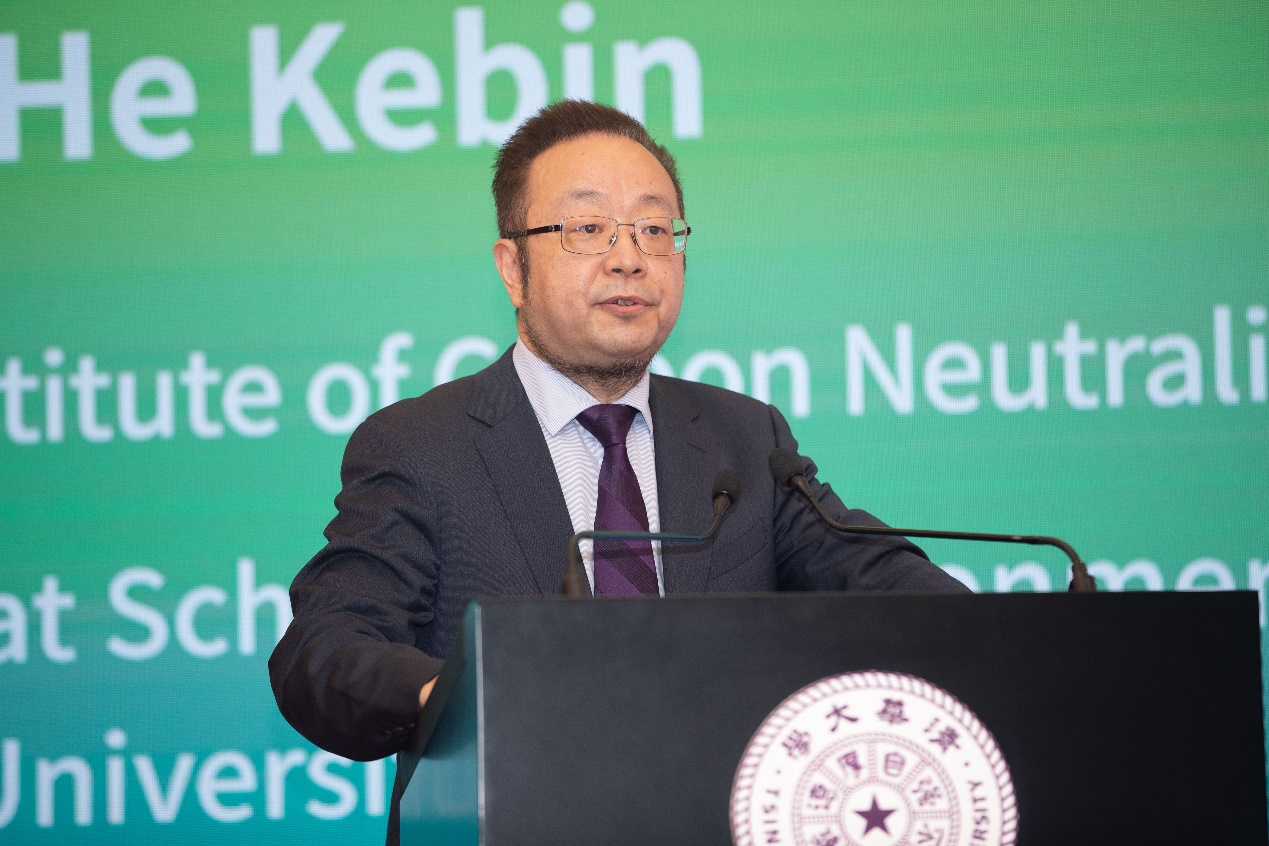
He Kebin, deputy director of the National Experts Committee on Ecological Protection, academician of the Chinese Academy of Engineering and professor with the School of Environment at Tsinghua University, was appointed dean of ICON. He said that in the future, ICON will focus on providing strategic solutions, key technologies and comprehensive demonstration to strongly support realization of carbon neutrality in China and globally.
ICON will strive to become a center of technological innovation and a high-end think tank, a training base for high-level talents and a platform for cooperation and exchange, while focusing on the target of carbon neutrality. It is expected to engage in research into electricity production and engines with zero-carbon emissions, new electric power systems, zero-carbon transportation, zero-carbon construction, deep reduction of carbon emissions in industries, coordinated development in the reduction of pollution and carbon dioxide emissions, the concept of Carbon Capture, Utilization, and Storage (CCUS) and carbon-sink capacity, and a carbon neutrality strategy, and to play a leading role in the main battlefield of carbon neutrality and the breakthrough of core technologies.
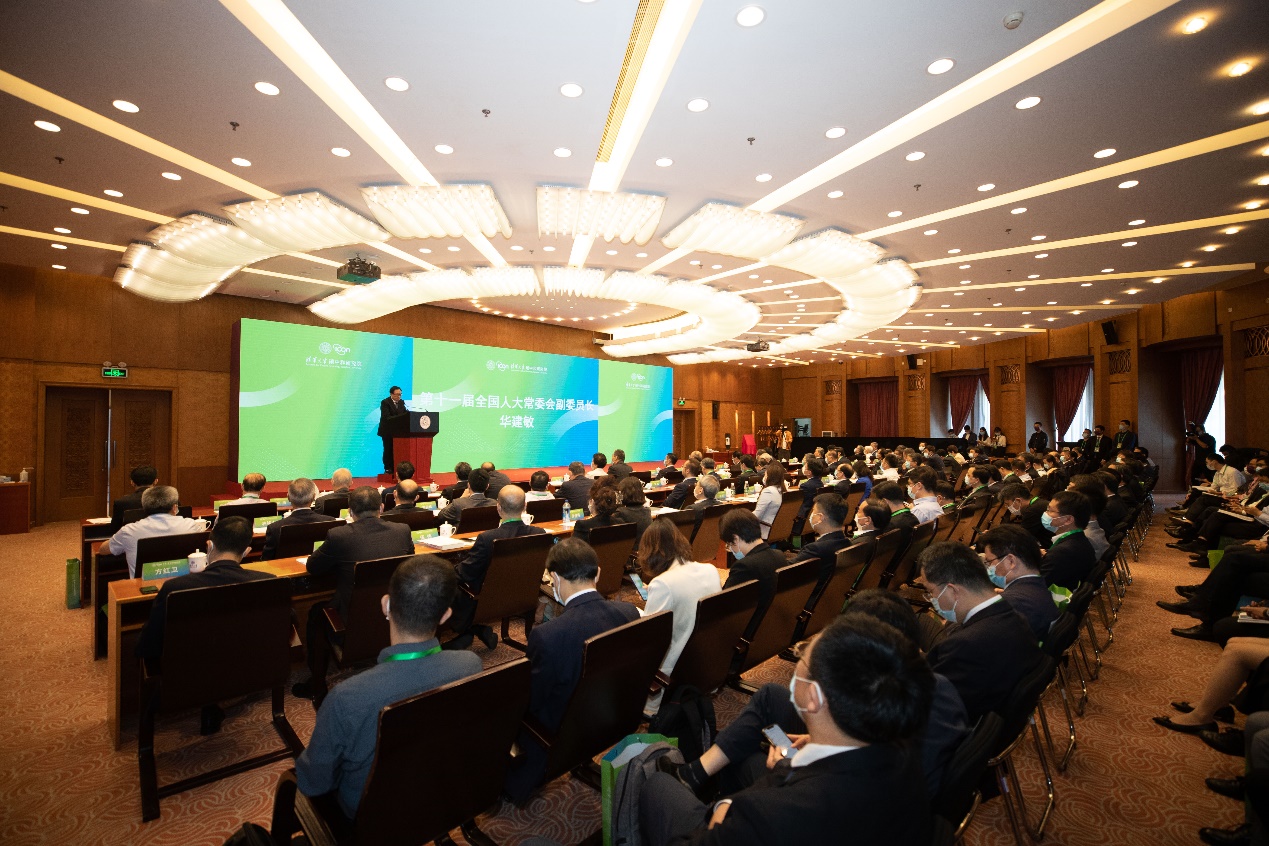
It is further expected to leverage its strengths in fundamental research and cross-discipline research, achieve collaborative innovation between different schools and disciplines, concentrate available resources on making a breakthrough in core and major technologies related to carbon neutrality, deepen cooperation between universities and local governments, incorporate low-carbon development with enterprises' needs in their transformation, and build a number of demonstration firms, cities and city clusters for green and low-carbon development.
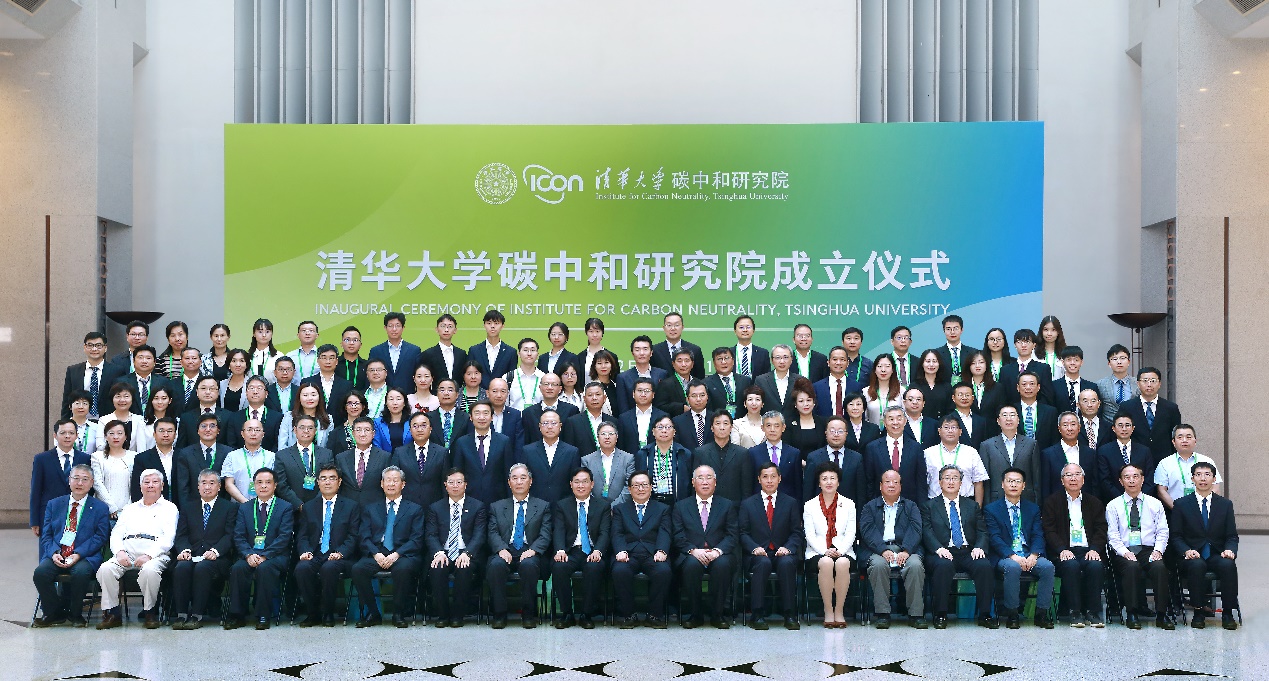
Furthermore, it should accelerate the utilization of scientific results, enhance its cooperation and exchange with world-class universities and research institutes, organize and conduct international cooperation and strategic research, and take part in major international scientific plans and projects in the sector of carbon neutrality.
Editors: Li Han, John Olbrich